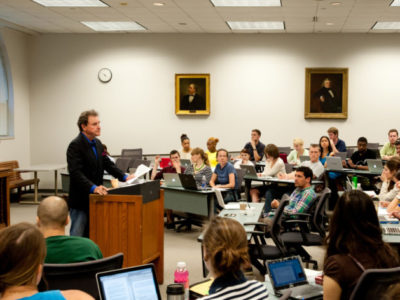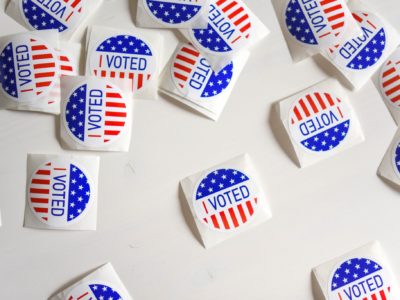Once you gain a better understanding on what Congress is and what it takes to become a member, let’s talk about everyone’s favorite topic: elections. When we think about elections, we immediately think about the presidential election, or the train wreck that happens every four years. That monstrosity isn’t the only election that we should care about.
Congressional elections represent a critical component to our democracy. As everyone knows, nothing screams democracy like a good election.

You know the importance of Congress and their ability to truly create change in the country, but that proactivity starts with us, the voters. Both houses of government are elected through direct popular vote. This means that all registered voters can directly vote for their representatives, contrary to the presidential election which goes through the Electoral College.
The election processes for the House of Representatives and the Senate differ. Firstly, members of the House only serve two-year terms. Voters in the candidate’s respective congressional district serve as the only people eligible to vote on their representatives. The Plurality Rule decides who wins the election; basically, the candidate with the most votes wins.
The Senate runs a little differently. Senators face re-election every six years and all registered voters in the state have the opportunity to vote in this election. The Senate also uses Plurality Rule, and they began using the direct popular vote in 1913. Up until the ratification of the 17th Amendment, state legislators appointed senators.
We have the power to elect people who represent our ideals and concerns, and we need to take advantage of that. Congress members are the politicians who pretty much invent the rules.
Politicians create the game that we are continuously playing, and we have the chance to pick them.

Congressmen work on committees to create laws and handle issues specific to one duty in our government. “When voting for a congressman, it’s not just about party lines, it’s also about what committees they are placed on,” said Emily Zimbler, a junior at Penn State and intern for Congressman Mike Quigley. “Congressmen attend hearings and get information from their staff to create committee specific laws. Each congressman is placed on a few committees, and you should research what committees the congressman you are voting for are on. Let’s say environmental policy is super important for you and your congressman is placed on the natural resources committee. You should vote for whatever candidate reflects your views, especially if they are on a committee that the subject you are passionate is about,” said Zimbler. Before voting, we have to research our congressmen and congresswomen’s committees and make well-informed opinions.
Remember, Congress members are the ones who can make laws. “When I registered to vote, I realized that I wasn’t just voting for the president. I saw that every representative had to get voted back into office, so I started my research. Max Rose works on the House Committee on Homeland Security and that is something that I really care about,” said Penn State junior Sofia Ardizzone. The members of Congress are the ones you can thank for your stimulus check. They are the ones who will provide you with healthcare if you don’t already have it; they can declare war, and they decide if we should declare peace. Lastly, they can even impeach the president.
Voting in a congressional election is just as important as voting in a presidential election.

According to the Census Bureau, the voter turnout rates in 2018 were higher than ever before in the past four decades. That was the most recent congressional election. “Historically, turnout rates in midterm elections, especially among young people, are quite low. When a president is not running for reelection, many citizens are less excited about the race and are less likely to be familiar with the congressional races as a result of less media coverage of elections during these midterm years,” said Dr. Amy Sentementes, a political science professor at Penn State. Yet, only 53% of the voting-age population voted in this midterm election. Why is only half of the population voting?
On Nov. 3, 2020, we will not only vote for the president. We will vote for all 435 seats in the House of Representatives and 35 seats in the Senate. This election could be the one to change our lives, our future children’s lives and even our future grandchildren’s lives. Please, pause your Netflix and get off of TikTik for just one hour. Start researching your state’s senators and your congressional district’s representatives, because you have a say in what happens from here on out in our country.



















